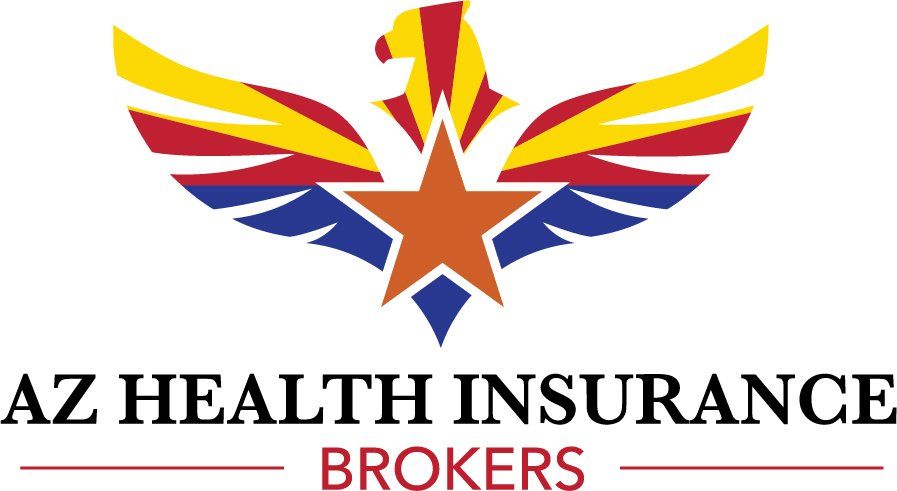First: What Is an HSA?
An HSA is a similar to a flexible savings account (FSA), only it’s used for healthcare costs. HSA participants add money to their account and can use those contributions to pay medical expenses tax-free now or in the future. Balances roll over year-over-year, so participants always retain control of and never lose their HSA contributions.
HSAs were created to pair with
high deductible health plans (HDHPs), to help offset HDHP costs. A benefit of offering an HDHP is that there are typically lower monthly premiums compared to lower-deductible
group health insurance plans. That can lower the cost-sharing for employers. In order to offer HSA plans to your employees, you must also offer an HDHP for your
business health insurance.
Compared to a traditional copay plan, the biggest differentiator with an HDHP-designated plan is that there are no copays. Members pay 100% of the “contracted rate” for each service, assuming it’s in network, until the deductible is met.
On a traditional copay plan, copays only apply towards the out-of-pocket maximum (OPM). On an HDHP, everything hits the deductible. Once the deductible is met on an HDHP, then the plan starts payout more aggressively.
It’s important for employers to be aware that not all HDHPs are HSA-eligible. Just because an HDHP deductible is above a certain amount doesn’t mean a plan-holder can contribute towards an HSA.
Generally, HSA-eligible plans state “HSA” in the plan title. In order to be able to contribute towards an HSA, the HDHP plan has to be HSA-qualified.
Another note is that employees cannot be eligible for an HSA if they’re a dependent or if they’re listed on another person’s tax returns. They also can’t have any other
health insurance coverage.
Benefits of HSA Plans
A major benefit of an HSA plan is that the contributions to that plan always stay with that employee. Anyone can contribute to an HSA plan to maximize contributions to it, including a spouse or relative. An HSA plan can provide health security and peace of mind, which current and prospective employees may be interested in.
HSA plans are a very good tax-sheltering vehicle for your employees. An HSA is the only vehicle in which money can be contributed tax-free, can grow tax-free and can be taken out tax-free.
- Contributed tax-free:
When an employer offers an HSA, contributions are deducted from a paycheck before tax. The employee won’t have to pay taxes on that income that goes toward an HSA, which can lower their overall taxes. Plus, employers don’t have to pay for payroll taxes on the pre-tax contributions of employees.
- Grow tax-free: If a member has more than $2,000 in their HSA, it can be invested and earn tax-free interest. Interest on HSA contributions or any returns from investing HSA assets in a mutual fund are never taxed.
- Taken out tax-free: As long as the money is spent on qualified HSA procedures and prescriptions, HSA participants don’t have to pay taxes on those dollars.
HSA plans can be especially beneficial for long-term healthcare costs. HSA funds can
pay for Medicare premiums, including Part A, B, C and D, once participants turn 65 years old.
In that way, an HSA plan can serve as a retirement asset for your employees, since
healthcare costs typically increase with age. The
Fidelity Retiree Health Care Cost Estimate reported the average retired couple ages 65 years old in 2023 needed $315,000 saved (after tax) for healthcare expenses.
Participants who are older than 65 years old can also use their HSA funds to cover non-medical expenses without having to pay a penalty. For reasons like these, offering an HSA plan may help you stand out as an employer and can boost your recruitment efforts.
Another financial benefit of HSAs for employers is that any contributions you make to employee HSAs can be used as a small business income tax deduction.
What Can HSA Funds Be Used For?
Eligible HSA expenses have continually expanded, as HDHP expenses now include healthcare such as telehealth appointments, over-the-counter drugs and feminine care products. The Internal Revenue Service (IRS) defines
medical and dental expenses here.
Qualified medical expenses for HSAs may include:
- Health plan deductibles
- Dental and vision care expenses
- Prescription drugs
- Counseling
- Copays
If your current employees become unemployed in the future and receive unemployment compensation, they’ll also be able to use HSA funds to pay Consolidated Omnibus Budget Reconciliation Act (COBRA) premiums, healthcare coverage premiums and long-term insurance premiums.
The IRS announced in 2024, the
max annual contribution for HSA plans is $4,150 for individuals with self-only HDHP coverage (up from $3,850 in 2023) and $8,300 for individuals with family HDHP coverage (up from $7,750 in 2023). As you can see, the max general contribution generally increases each year.
Things to Consider With HSA Plans for Employers
Since HSA plans are paired with HDHPs, they likely don’t make sense for employees who frequently visit the doctor or who take a relatively expensive medication on a recurring basis. The employee will have to pay 100% of their healthcare costs until they meet the HDHP deductible.
With a copay
group health insurance plan, employees would typically pay less if they’re using healthcare services more frequently. For example, if someone just had a baby and they need biweekly checkups, a traditional copay
health insurance plan may make more sense. Paying 100% for a specialist visit on an HSA plan may cost an employee hundreds of dollars per visit, whereas a more traditional copay
health insurance plan would typically cost less.
Also, healthcare expenses and illness can be unpredictable. That can make it difficult to accurately budget and save the appropriate amount of funds in an HSA for future medical expenses.
For these reasons, some current and potential employees may not want an HSA plan compared to a more traditional copay
healthcare plan.
Also, not all procedures are eligible for HSA coverage. Like various other types of healthcare plans, voluntary and elective treatments generally aren’t covered by HSAs.
As an employer, know that whatever HSA funds an employee has accrued will always belong to that employee. If you contribute to an employee’s HSA plan, those financial contributions will stay with the employee, whether they remain at your company or leave.
However, since that’s something that benefits employees, that could make your company an attractive employer if you offer HSA contributions to employees.
HSAs also reward proactive health management. People who focus on staying active and maintaining a balanced lifestyle often benefit the most from these plans. Partnering with professionals who specialize in fitness and long-term wellness, such as
Anastasii fitness , a Phoenix-based personal training company that helps clients achieve sustainable weight-loss and health goals can help employees reduce preventable healthcare costs and make the most of their HSA funds over time.
When Does an HSA Make Sense for an Employer?
You might choose to offer an HSA if you offer an HDHP and your employees are interested in growing their health savings. The OPM is typically slightly less compared to more traditional, similar copay plans, which can also benefit you and your employees with cost savings.
HSA plans also make a lot of sense for employees who know they’ll meet their OPM, due to the tax liability assistance. If you offer a HDHP to employees, an HSA can supplement that insurance plan for employees and provide your business with tax benefits.
There’s an abundance of
health insurance options for employers to choose for their employees, including options like a
Qualified Small Employer Health Reimbursement Arrangement (QSEHRA) and an
Individual Coverage Health Reimbursement Arrangement (ICHRA).
Reach out to Arizona Health Insurance Brokers to see if an HSA employer-based plan is the best choice for your workforce. Call 602.617.4107, email
quotes@azhealthinsurancebrokers.com or
contact us online for
Arizona employer health insurance options.













